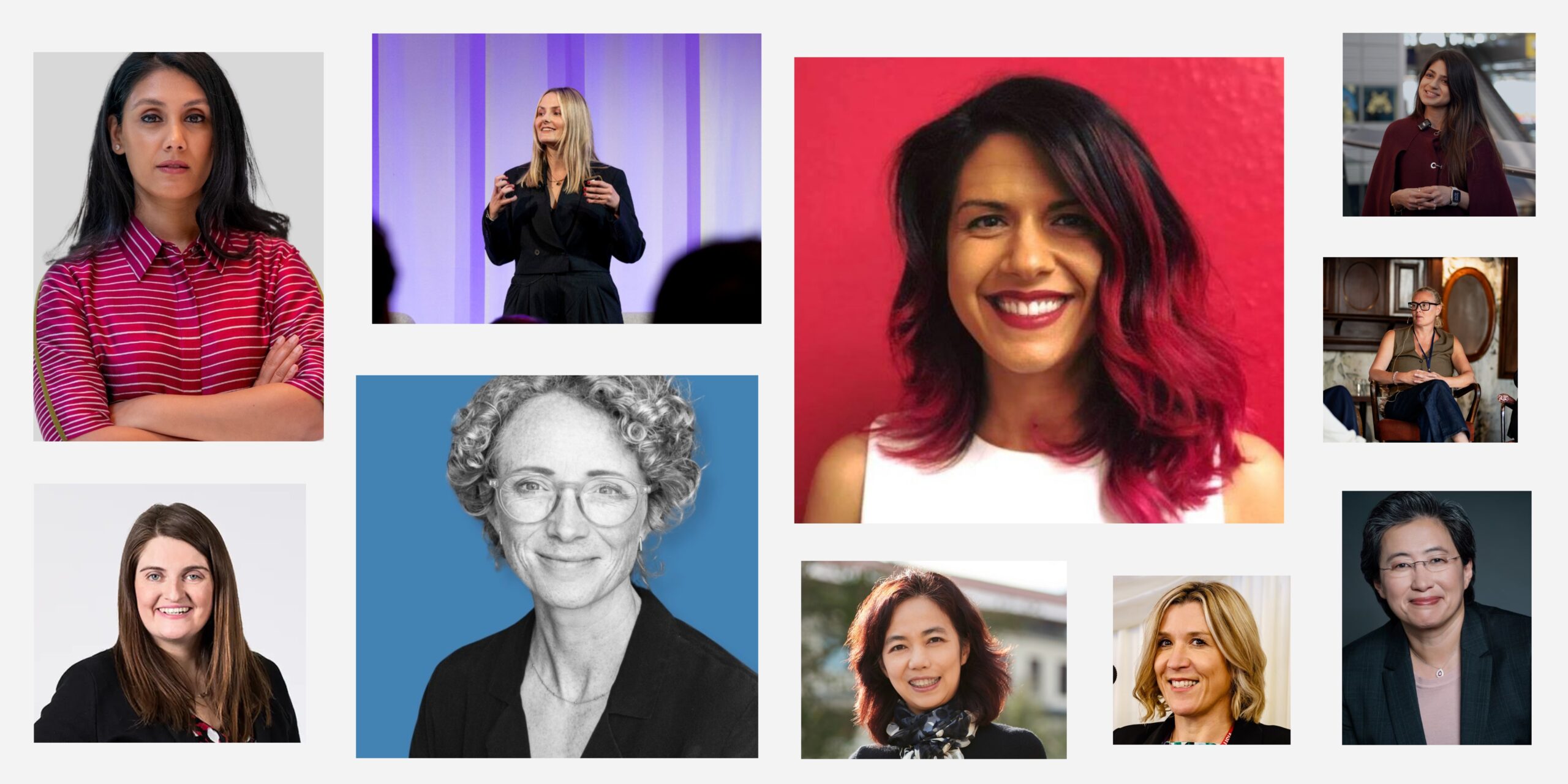This week we caught up with Annie Guest, People Business Partner at Assurant.
Assurant is a leading global provider of lifestyle and housing solutions that support, protect and connect major consumer purchases. Assurant partners with some of the world’s most recognisable brands, helping them solve their business challenges.
Annie talked to us about her current role and the initiatives that have been introduced in the UK to improve the gender pay gap at Assurant.

Annie, you joined Assurant in 2007 and you’re currently a People Business Partner. Can you tell us about yourself and your role at Assurant?
I came to a human resources role a bit later in my career, having worked for 12 years in IT outsourcing before retraining. As a People Business Partner, I am responsible for leading the delivery of multiple employee-focused projects. In practice this means overseeing initiatives such as the implementation of new payroll systems, leading the European team in our recent Workday implementation, setting up and overseeing pension auto enrolment and benefits harmonisation. Diversity, Equity and Inclusion (DEI) also fits under my remit, as well as employee engagement, wellbeing and support which are central to my role at Assurant.
You’ve been at the company for almost 14 years now. What is it about Assurant that’s kept you in the business for so long?
Assurant has provided me with excellent opportunities to develop my career. They gave me my first role in the People Organisation after retraining, and in my position, I have been able to continuously learn, develop and excel.
Ultimately, my role means working on projects which have a tangible benefit for our employees and that particularly excites me. I’m empowered to research and trial different approaches so that I can demonstrate results and make recommendations to the business before full implementation is rolled out. For example, I have spent much of the last 12 months designing and executing a wellbeing programme designed to support our people through the COVID-19 pandemic. It’s been incredibly rewarding to see how this programme has helped to support our people and improve their resilience.
We’re here today to talk about gender diversity and, in particular, the gender pay gap. What has been your personal experience of being a woman in business? How has this changed over time?
Looking back at when I first started my career, there were differences in how men and women were treated in the workplace. I worked in a male dominated industry, with very few women leaders – in fact when I started, there were no senior women leaders at all. Having said that, I was never held back from progressing my career. I was encouraged to develop my skills, to challenge myself and gain as much experience as possible to realise my full potential.
And over time I have had the privilege of working alongside some strong and talented leaders, both women and men, who have supported the development of my career.
You’ve been involved significantly in the UK gender pay gap reporting at Assurant. Where is the company now on its journey to pay parity?
Since Assurant signed the CEO Action for Diversity & InclusionTM pledge we have made significant progress on our path toward improved diversity, equity and inclusion (DEI), including our goal to narrow and eliminate our gender pay gap. Assurant’s mean gender pay gap in the UK has reduced by 14.7 per cent since our first report in 2017. Our bonus gap reduced by 7 per cent in the last 12 months due to the rationalisation of reward schemes and we’ve seen a 17 per cent increase in women hires in professional roles in the past three years. It’s great progress, but we still have work to do to further close the gap.
We remain committed to gender equality and have for the first time introduced diversity targets in the UK to reinforce that commitment. For example, as part of our global strategy, we have sought to improve gender diversity within the EU Leadership team. We have made good, steady progress over several years and it is pleasing to see that our actions are resulting in improved outcomes. We still have more to do to achieve our 2025 targets, but we are delighted with our progress to date.
You say you have more work to do, what initiatives have been implemented within the business to improve the gender pay gap?
We have a number of initiatives and programmes that fall into five categories: talent acquisition, development and retention, talent management, education and awareness and strategic partnerships and community engagement.
We’ve developed a talent acquisition plan to ensure a balance of candidates at all stages of the recruitment cycle. During this year we have invested in initiatives that have allowed us to gain access to more diverse talent pools through innovative attraction channels, educated our hiring managers on the importance of DEI and introduced DEI enhancements through each stage of the recruitment journey.
This approach is clearly having a positive impact as the percentage of senior women has increased by 8 per cent since reporting began. In the last year, we hired more women in head office roles than men, a first for our European business.
What about the retention and development of employees once women are in the business?
One of the biggest drivers of the gender pay gap is that women can spend more time out of the workplace or work part-time due to caring responsibilities. Family-friendly policies and enhanced parental leave and pay are key tools to enable a more equal sharing of work and childcare responsibilities.
To enable greater equity, we have enhanced our maternity and paternity policies to offer 10 weeks at full pay for maternity leave and 2 weeks full pay for paternity leave. As part of the drive to use data to make decisions more effectively, we also launched a new exit interview process designed to identify barriers; for instance, what does career progression look like for colleagues returning from maternity leave?
The COVID-19 pandemic also accelerated our thinking around flexibility with the vast majority of roles successfully operating away from a traditional office environment. Flexible working is now part of our role advertisements and discussed during the interview process, alongside raising awareness of these options internally.
Do you think that gender pay gap reporting has made a difference in how companies like Assurant view and work towards pay parity?
Yes. It’s encouraged companies to be accountable, recognise challenges and act on them where they exist. The figures speak for themselves in the level of improvement since pay gap reporting came into place. At Assurant, we were already working on improving the pay gap, but reporting has made it a standard across industries and given measurable data to track progress.
We’ve talked a lot about the gender pay gap which is a significant priority for you. What about the diversity, equity and inclusion of other groups? For example, people from BAME backgrounds?
The racial awakening we’ve experienced globally has caused a lot of companies to sit up and recognise that there is still a long way to go to achieve racial equality in the workplace.
We have signed Business in The Community’s race at work charter, committing to the same actions as we have done on gender. This includes appointing an executive sponsor for race, capturing ethnicity data and publicising progress, committing to zero tolerance of harassment and bullying, making it clear that equality in the workplace is the responsibility of all leaders and managers and taking action that supports ethnic minority career progression. This is the start, and we are constantly looking at new policies and initiatives to improve our diversity.
Why does Assurant view diversity, equity and inclusion as so important to its business?
A diverse, equitable and inclusive company will better understand and connect with its employees, clients, and customers. Diversity drives innovation in the global marketplace and is a key differentiator for us. DEI is a key enabler for repeated success in improving performance, creating growth opportunities, driving innovation and enhancing engagement for our employees.
Is there any advice you’d give to other professionals working to improve their company’s gender pay gap?
One of the most important things anyone working in this space can do is to listen. Understanding individuals’ lived experiences of working in your organisation is key to meaningful change. Our improvements have only been possible because we put our people first in every decision.



